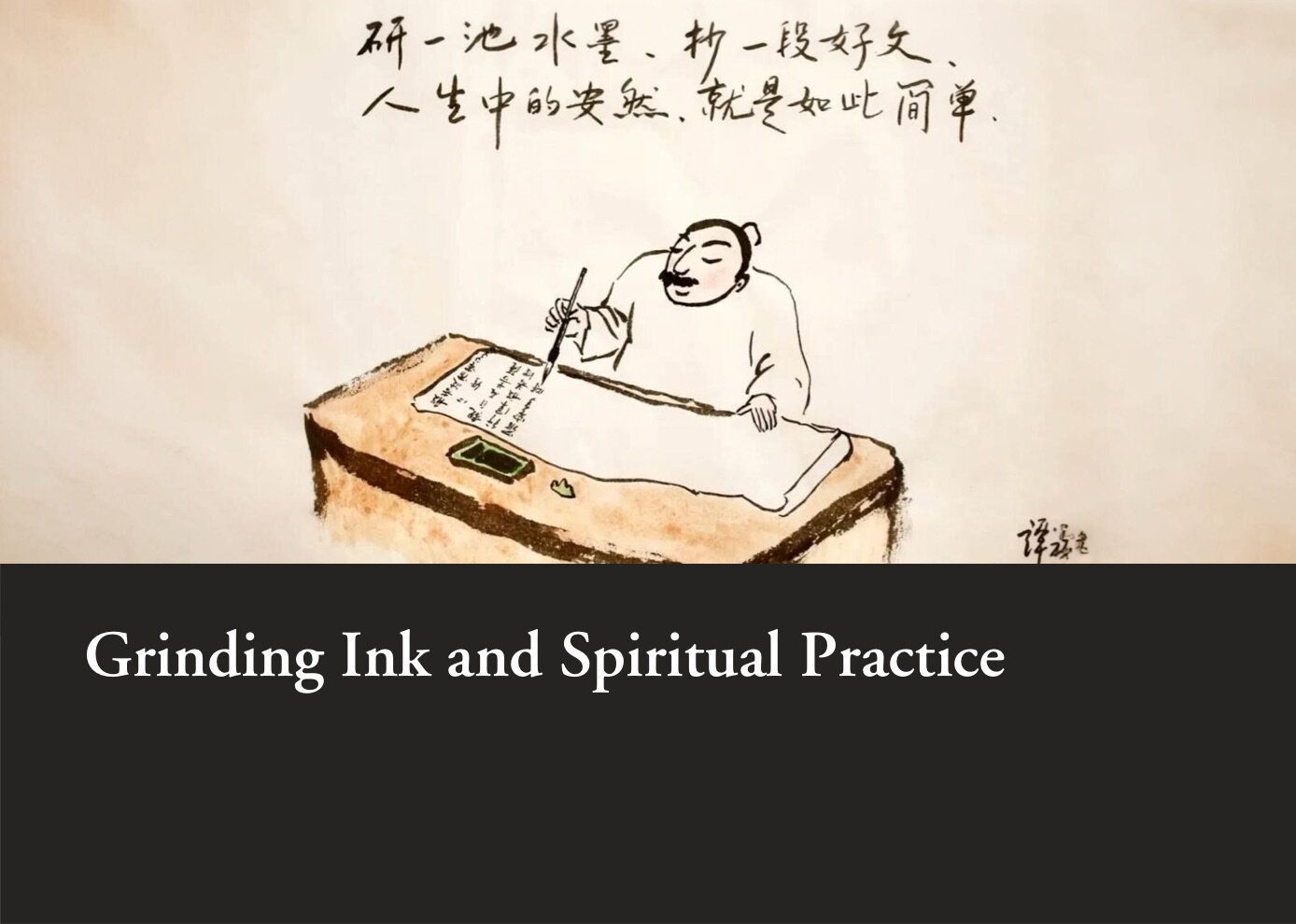Grinding Ink and Spiritual Practice
Everlasting Longing (長相思)
Performer: TAM Po-sherk (Chinese vertical bamboo flute, 譚寶碩—洞簫), WANG Yan (Guqin, 王燕—古琴)
Selected from New Century Workshop's music album “Flute Melodies in the Still Night (《靜夜簫聲》)”
I have a student ink stone, quite rough and cheap.
It was from when I was young, used when I first learned calligraphy.
The teacher required me to grind ink with the ink stone.
I asked, "Wouldn't using ready-made ink be more convenient?"
The teacher said: "Grinding ink wears down the person, and the person wears down the ink. Use it for a long time, and you'll understand."
At first, I didn't understand. I only felt that grinding ink was a tedious task, adding water, grinding, and my wrist would quickly become sore. The process of grinding ink was so long it made me anxious, and I would frequently test the brush, wondering when the clear water would finally turn into thick ink suitable for writing.

(墨池秋淨水痕澄,曲幾焚香袖手憑。)
[Ming Dynasty] LIU Bing (劉炳)
Calligraphy: TAM Po-shek
As I grew older, this ink stone accompanied me.
On countless nights, whenever I grind ink, the "squeak-squeak" sound is monotonous yet steady. The scent of ink drifts out in wisps, as if untangling my jumbled thoughts strand by strand. Gradually, my breathing slows without my noticing. It turns out the first lesson ink grinding teaches is patience.
Sometimes when I'm troubled, I grind ink with excessive force. The resulting ink is coarse and murky, and the characters I write are rough and uneven. I set down my brush in despair, suddenly realizing that when you're in a mad rush to achieve a result, you often ruin the entire process.

(墨妙無前,性生筆先。)
[Tang Dynasty] HUANGFU Ran (皇甫冉, 714-767)
Calligraphy: TAM Po-shek
So it turns out that grinding ink truly grinds away at you—it grinds away your temper, your restlessness, that heart of yours always eager to rush. In the gentlest yet most stubborn way, it forces you back to the present moment, back into these cycles of repetition. Grinding ink requires lightness, slowness, and evenness. How is this grinding ink? It is clearly grinding the heart.
That the clear water becomes ink is certainly the result, but the real craftsmanship is hidden in those invisible rotations.
The ink grinds on the inkstone, the inkstone is moistened beneath the ink, the person cultivates the heart while grinding ink, and the heart becomes clear through these back-and-forth motions.
This mutual honing, this wordless teaching, is the true meaning of the character "grinding."

Such simplicity, is the tranquility in life.
(研一池水墨,抄一段好文。人生中的然安,就是如此簡單。)
Calligraphy: TAM Po-shek
Now, I still grind ink in the deep of night, the sound fine and scattered, watching the ink gradually darken.
Sometimes I write, sometimes I write nothing at all, just quietly grinding.
Grinding away the day's clamor, grinding out clarity of mind.
And I finally understand that life's composure lies not in holding on tight.
Like grinding ink, the contraction and expansion within this small space is the true path of cultivating the heart.
When one grinds ink, what is honed is skill; when ink grinds the person, what is tempered is character.
Within this cyclical motion lies the deepest form of practice.
In the eternal cycle, we complete each other and achieve our own fulfillment.
< 原创文章/视频,未经许可,不得转载 >




Welcome to leave a message:
Please Sign In/Sign Up as a member and leave a message